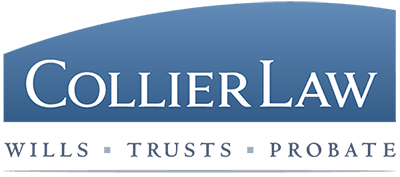When it comes to managing finances and making crucial decisions during incapacity, a professional fiduciary can provide the expertise and support needed to ensure your best interests are protected. A fiduciary is an individual or entity entrusted with managing financial affairs or making healthcare decisions on behalf of another person. When there is no trusted friend or family member to make those decisions, many individuals choose a professional fiduciary instead. Selecting the right professional fiduciary is a critical decision, and asking the right questions can help you make an informed choice.
As your local estate planning firm, we want to help you stay informed. In this blog post, we’ll explore essential questions to ask when choosing a professional fiduciary to handle your financial and medical matters.
Do they offer management of finances during incapacity using power of attorney?
One of the primary responsibilities of a professional fiduciary is managing finances during incapacity using a Power of Attorney (POA). A POA is a legal document that grants authority to the appointed agent (the fiduciary) to make financial decisions on behalf of the individual (the principal) if they become incapacitated. Ask about the fiduciary’s experience and expertise in handling financial matters, their approach to investment management, and how they plan to protect and grow your assets during periods of incapacity.
Do they offer medical decision-making services?
Apart from financial matters, medical decision-making services are equally crucial during incapacity. A Medical Power of Attorney or Advanced Directive for Healthcare allows the fiduciary to make healthcare decisions on the principal’s behalf when they are unable to do so. Understanding the fiduciary’s approach to medical decision-making, their communication with healthcare professionals, and how they prioritize the principal’s well-being can provide you with peace of mind in knowing your healthcare preferences will be honored and upheld.
What do they charge?
Understanding the cost of hiring a professional fiduciary is essential for effective financial planning. Fiduciaries may charge differently based on factors such as the scope of services, the complexity of your financial and medical situation, and the fiduciary’s experience. Some fiduciaries may charge a flat fee, while others might use an hourly rate or a percentage of the assets under management. Request a clear breakdown of their fee structure and any potential additional expenses to ensure it aligns with your budget and needs.
What is not included in their fee that might need to be handled during an administration?
While a professional fiduciary’s fee covers a range of services, certain tasks or situations might not be included and could incur additional costs. For example, legal fees arising from disputes, extraordinary expenses, tax preparation, or services that fall outside the scope of the agreement may not be covered. Discuss any potential additional costs and ask for a comprehensive overview of their services to avoid surprises down the road.
How do they handle unreasonable requests for money from beneficiaries?
Unreasonable requests for money from beneficiaries can arise during the fiduciary’s administration, both during your incapacity and also upon your passing. It’s crucial to understand how the professional fiduciary handles such situations to protect your assets and ensure they are used in your best interest. Ask about their protocols for evaluating requests, any measures they take to prevent fraud or exploitation, and how they involve legal counsel if needed. Ask how they assess requests for money from your chosen beneficiaries after your passing if they are handling funds for the beneficiary on an ongoing basis.
What is their experience and background?

It’s crucial to understand the qualifications and experience of the professional fiduciary you are considering. Ask about their professional background, year and type of experience, including any relevant certifications, training, or affiliations. Inquire about the types of clients they typically work with and the complexity of cases they have handled. Additionally, request references or testimonials from previous clients to gain insight into their track record and reputation.
Are they licensed and bonded/insured?
Ensuring that the professional fiduciary is properly licensed and bonded/insured is essential for your protection. A licensed fiduciary has met the necessary requirements to operate legally in their jurisdiction and adheres to professional standards. Bonding and insurance provide an additional layer of financial protection, safeguarding against potential errors or misconduct. Verify their credentials and inquire about their insurance coverage to guarantee your assets are in safe hands.
Conclusion
Choosing the right professional fiduciary is a decision that requires careful consideration and thorough research. Asking the right questions can help you gain a deeper understanding of the fiduciary’s capabilities, fees, and approach to handling financial and medical matters. Remember to assess their experience, qualifications, and licensing, as well as their strategies for managing finances and handling potential challenges. By choosing a competent and trustworthy professional fiduciary, you can have confidence that your affairs will be managed with the utmost care and diligence, even during times of incapacity.
IN NEED OF AN ESTATE PLANNING ATTORNEY? CALL COLLIER LAW!
Estate planning can be a very complex process, and it’s easy to feel overwhelmed. Often, it’s hard to know where to start with estate planning and even harder to know if you’re making the right decisions for yourself and your loved ones.
Collier Law is here to help. Our team of experienced professionals, located in Salem, OR, and with an office in Lake Oswego, OR, will guide you through every step of the estate planning process, from understanding your needs to drafting and executing a plan that works for you. We’ll help you make sure your estate is handled smoothly and efficiently in the event of your death or incapacity.
Our wide range of legal services include:
- Basic Estate Plans & Advanced Estate Planning Services
- Trust Administrations
- Guardianship & Conservatorships
- Probate Process Assistance
- Revocable Living Trusts
- Last Will & Testament
- And More.
To learn how Collier Law can help with the complexities of wills, trusts, powers of attorney, and other advanced estate planning techniques, schedule your complimentary estate planning consultation with one of our experienced attorneys. Call now to make your appointment.

